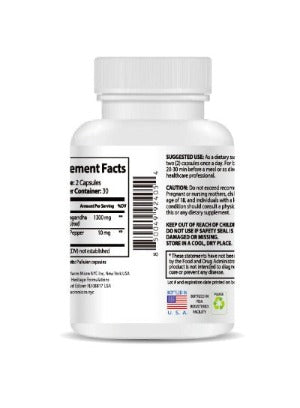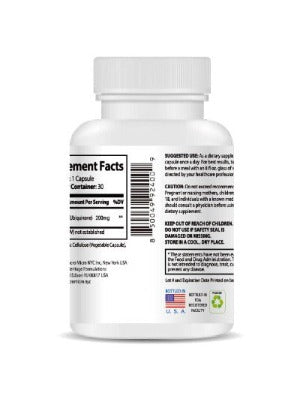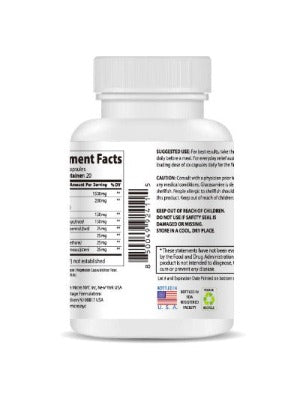ry eye can feel like a constant, unwelcome companion. The gritty, burning, and tired sensations can disrupt everything from reading a good book to driving at night. While this condition can affect anyone, it is not an equal-opportunity ailment. Statistics and lived experiences show that two groups are particularly vulnerable: women, especially during and after menopause, and seniors.
If you fall into one of these categories, you may have been told that your symptoms are just an inevitable part of life—a consequence of hormonal shifts or the natural process of getting older. But what if that wasn't the whole story? What if your dry eyes weren't something you just had to endure, but a message from your body pointing to a deeper imbalance that can be addressed?
This is the perspective of Traditional Chinese Medicine (TCM), an ancient healing system that offers profound insights into the root causes of conditions like Dry Eye Syndrome. To guide us through this analysis, we turn to the expertise of Dr. Jesse Huang, a third-generation TCM practitioner. According to Dr. Huang, the reasons why women and seniors are so susceptible to dry eyes are deeply interconnected and can be explained by TCM’s holistic view of the body. This guide will explore the powerful links between your hormones, the aging process, and your eye health, and reveal how you can find lasting relief by nourishing your body from within.
The Foundation of Eye Health: A TCM Primer on Yin and Blood
Before we can understand why aging and hormones are such significant factors, we must first grasp a fundamental concept in TCM: the health of your eyes is a direct reflection of the health of your internal organs, specifically the Liver and the Kidneys.
In TCM, these organs are responsible for producing and regulating the body’s most vital nourishing substances: "Blood" and "Yin."
-
Blood, in a TCM context, is a rich, life-giving fluid that moistens and nourishes all the tissues in the body, especially the eyes. The Liver is the primary organ responsible for storing and regulating it.
-
Yin represents all the cooling, moistening, and fluid-based elements of the body. It’s the physiological opposite of the active, warming "Yang" energy. The Kidneys are considered the root of all Yin in the body.
When Blood and Yin are abundant, your eyes are bright, comfortable, and well-lubricated. When these substances become depleted—a condition TCM calls "Yin Deficiency" or "Blood Deficiency"—the body begins to dry out, and the eyes are often the first place you feel it. This internal dryness is the root cause of Dry Eye Syndrome.
The Senior Years: The Natural Decline of Foundational Essence
It’s a simple fact that our bodies change as we get older. Modern medicine observes that tear gland function degenerates with age, leading to lower tear production. TCM has had a sophisticated understanding of this process for millennia.
Dr. Huang references the Huangdi Neijing (The Yellow Emperor's Inner Canon), one of TCM’s foundational texts, which astutely observed the patterns of aging. It states that around age 40, the body’s Yin energy naturally begins to decline, and by age 50, hearing and sight may no longer be as sharp
From a TCM perspective, this isn't just a random decline; it's the result of the gradual depletion of our "Kidney Essence" (Jing) and, by extension, our Liver and Kidney Yin and Blood. Think of Kidney Essence as your body's foundational battery, your deepest reserves of energy and vitality. As this battery naturally loses its charge over a lifetime, there is less energy available to produce the nourishing Yin and Blood that keep the body, and especially the eyes, moist and healthy.
Therefore, the increased incidence of dry eye after 40 is not just a localized gland failure; it is an external manifestation of a profound, systemic shift in the body's foundational resources.
The Female Factor: The Intimate Link Between Hormones and Eye Health
Women often report that their dry eye symptoms began or worsened significantly during pregnancy or menopause. This is no coincidence. Modern research confirms that hormonal fluctuations, particularly changes in estrogen, directly affect tear production.
TCM provides a framework for understanding why. Dr. Huang explains that in TCM, estrogen levels are seen as a direct reflection of the state of the Liver and Kidney essence and blood. When estrogen is low, it is a sign to a TCM practitioner that the body's foundational Yin and Blood are insufficient.
This is especially critical for women's health. There is a core principle in TCM that states, "women are rooted in yin and blood" . A woman's entire physiology—from the monthly menstrual cycle to pregnancy and childbirth—places an immense and constant demand on these nourishing resources.
Menopause, in particular, is a time when a woman’s Kidney Yin naturally declines significantly. This can lead to a condition of "yin deficiency with blazing fire," which gives rise to classic menopausal symptoms like hot flashes, night sweats, and, of course, severely dry eyes. The body simply lacks the cooling, moistening fluids to balance its active, warming energy, and the eyes bear the brunt of this internal drought.
A Unified Strategy: How to Nourish Yin and Blood for Lasting Relief
The beauty of the TCM diagnosis is that it points directly to the solution. If the root cause of dry eye in both seniors and women is a deficiency of Yin and Blood, then the treatment strategy is to replenish these vital substances. Dr. Huang suggests a gentle, holistic approach.
1. Nourish from the Inside with Foods and Teas
What you eat and drink is the most direct way to rebuild your body’s resources.
-
Herbal Teas: Dr. Huang recommends several gentle herbal teas specifically designed to nourish Yin and Blood.
Goji Berry and Chrysanthemum Tea: A classic formula to nourish the Liver and Kidneys.-
Mulberry and Goji Berry Tea: An excellent choice for building Blood.
-
Dendrobium Tea: A prized herb for its ability to powerfully generate fluids and nourish Yin.
-
-
Yin-Nourishing Foods: Incorporate foods known to moisten the body. Dr. Huang suggests ingredients like black sesame and lily bulbs. Other excellent choices include dark berries, sweet potatoes, pears, and small amounts of bone broth.
2. Embrace a Restorative Lifestyle
-
Prioritize Sleep: Dr. Huang emphasizes the importance of being asleep before 11 PM. According to the TCM body clock, this is when the Liver and Gallbladder are most active, working to regenerate your Blood. For those with depleted reserves, this is non-negotiable medicine.
Gentle Movement: Activities like Tai Chi, Qigong, and gentle walking are excellent for seniors and women as they circulate Qi and Blood without further depleting Yin.
3. Stimulate with Gentle Acupressure
Acupressure is a safe and simple way to improve circulation around the eyes and relieve symptoms. Dr. Huang recommends gently massaging four key points:
Jingming (inner corner of the eye), Zanzhu (inner eyebrow), Taiyang (temples), and Sibai (on the cheekbone below the pupil).
By understanding that your eye comfort is a direct reflection of your internal hormonal and energetic balance, you can take empowered steps to restore your health. While aging and hormonal changes are natural life processes, suffering from dry eyes does not have to be your reality.
Your Questions Answered: A Q&A for Women & Seniors
Q1: Is it actually possible to reverse age-related or hormone-related dry eye, or can I only manage the symptoms? A: From a TCM perspective, the goal is to treat the root cause, which can lead to a significant and lasting reduction in symptoms, effectively improving the condition. While the natural processes of aging will continue, by actively nourishing your Liver and Kidney Yin and Blood through diet, herbs, and lifestyle, you can rebuild your body's ability to properly moisturize your eyes. Dr. Huang suggests that with consistent TCM treatment, even mild to moderate cases can see noticeable relief in just 2 to 4 weeks.
Q2: I'm going through menopause and my dry eyes are severe. Can TCM specifically help with this? A: Yes, absolutely. Menopause is considered a classic case of "Kidney Yin Deficiency" in TCM. The treatments for dry eye—nourishing Yin with herbs and foods—are the very same strategies used to manage other menopausal symptoms like hot flashes and night sweats. By addressing the root cause of Yin deficiency, you can often find relief for a wide range of menopausal discomforts, including your dry eyes.
Q3: I have dry eyes, but I also have dry skin and a dry mouth. Are these related? A: Yes, in TCM, these are all considered classic signs of a systemic "Yin Deficiency." When the body's foundational fluids are depleted, the dryness doesn't just affect one area. It will manifest wherever your body is most vulnerable. Seeing these symptoms together is a strong confirmation that your dry eyes are not just a local issue, but a sign that your entire body is in need of deep hydration and nourishment.
Q4: What are the best foods I can eat to specifically build back my Yin and Blood?
A: Dr. Huang specifically mentions several beneficial ingredients, including goji berries, chrysanthemum, dendrobium, black sesame, and lily bulbs. Beyond these, focus on foods that are dark in color (like blackberries, black beans, and beets), have a slippery texture (like okra and sweet potatoes), and are hydrating (like pears and cucumbers). Small amounts of high-quality protein are also essential for rebuilding Blood.
Q5: Is acupressure safe for me to do at home, especially if I'm older or have other health conditions?
A: The gentle acupressure techniques Dr. Huang describes are generally very safe for most people to perform at home. The key is to use firm but gentle pressure and never cause sharp pain. However, if you have a serious medical condition, especially related to your eyes like glaucoma, or if you are on blood thinners, it is always best to consult with your doctor or a licensed acupuncturist before beginning any new self-treatment routine.









